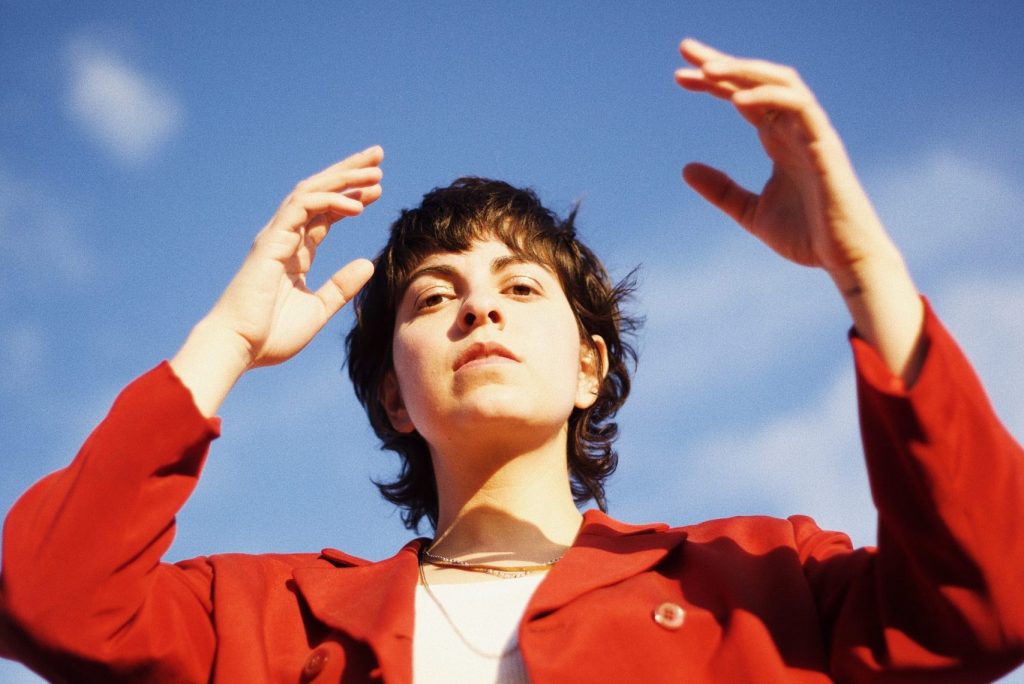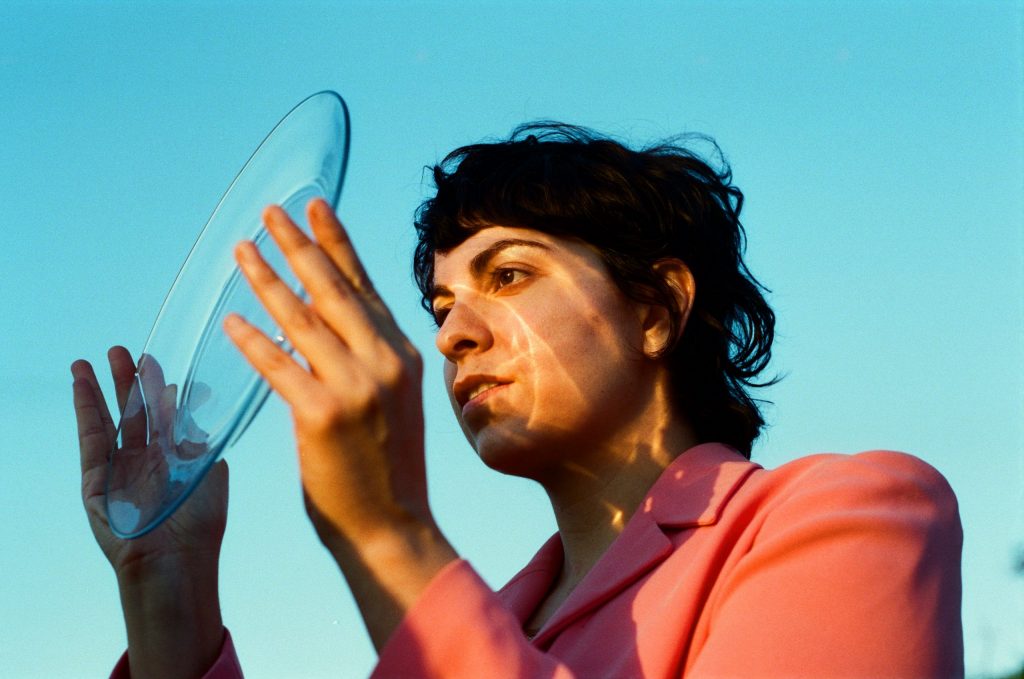Becca Mancari Leads an Emotional Journey, Live in Washington DC
by Annie Parnell, Managing Editor

“Tonight I’m all yours, but I’m especially here for my queers,” Becca Mancari declared at the start of her September 12 set at Washington DC nightclub DC9.
Amid rousing applause from the audience, the Nashville-based indie-folk musician introduced one of her most emotional songs. “First Time,” off her 2020 album The Greatest Part, is a painful reflection on coming out to parents who rejected her because of their religion.
“This song is about us,” she said simply.
Many of Mancari’s releases deal with these painful intersections of faith, family, and sexuality, a vulnerability that reaches even more emotional resonance when they’re performed live. “First Time” asks “would the God that you love so easily take that love back?”. “Tear Us Apart,” meanwhile, repeats the titular phrase “they’re trying to tear us apart” over and over alongside recollections of first meeting a partner, interspersing a gentle guitar with cacophonous strings.
The New York Times has called The Greatest Part “Stereolab gone to Nashville,” an apt description for Mancari’s blend of lonesome twangs with a shoegaze edge. With this combination, her music is perfect for fans of Hand Habits, Bon Iver, and Big Thief.
“Stay With Me,” in fact, lyrically echoes Big Thief’s “Mythological Beauty,” asking the question “children raising children, how do you handle that?”. Like frontwoman Adrianne Lenker, Becca Mancari deftly mixes these devastating memories with warmth, searching for answers to the conflicts of love and acceptance while also acknowledging that there are none.
While introducing her breakout hit “Summertime Mama” on 2017 release Good Woman, however, Mancari reflected on her Americana origins. In the early stages in her career, she explained, she moved to Nashville and promptly tried “the age-old scheme of ‘buy a hat, put your boots on, and write a country song.’”
Though Mancari insisted she doesn’t play country music anymore, those roots run deep, an influence that has continued to manifest in the quieter-yet-stranger tracks across The Greatest Part and her recent acoustic EP Juniata. Mancari’s impressive vocal range is better on display in each — her voice peaks and flows like the terrain of her childhood home in rural Pennsylvania, imbuing her music with a dynamic sense of growth and change.

It may be for this reason that the atmosphere at DC9 was so unmistakably intimate on the 12th. “I don’t always talk about the songs. This is different,” Mancari commented at one point, before dedicating the next song she played to Maria, her girlfriend running the merch stand who I eventually realized she had been stealing glances at the whole night. A few times, she referred to the set as “an emotional journey” that the audience was accompanying her on — a journey that held space for both the domesticity of “Kitchen Dancing” and the cyclical toxicity of “Golden.”
Despite her recent evolution, Mancari has been called back to similar themes in her new music, to which she returns with a clarion sense of empathy and self-confidence. Watching her perform songs from Good Woman alongside The Greatest Part only emphasized this — particularly towards the end of her set, when Mancari shifted from the stinging refrain “I can’t face myself” at the end of “Dirty Dishes” into the intimacy and forgiveness of “Stay With Me.”
Mancari rounded off her set with “Annie,” the only previously-unheard track from Juniata, and a question to the audience that she had forgotten to pose at the beginning: where was everyone from, anyway? We discovered that someone in the audience had grown up half an hour from her hometown, but in a way, the surprise similarity didn’t matter. We were all closer to each other, now. Our journey had come to a close.
Annie Parnell is the Managing Editor of Country Queer and cohost of the radio show Cowboy Church. She also runs the newsletter Tugboat. Her writing has been featured in PopMatters, The Boot, Taste of Country, We Are The Mutants, and the Virginia Literary Review.